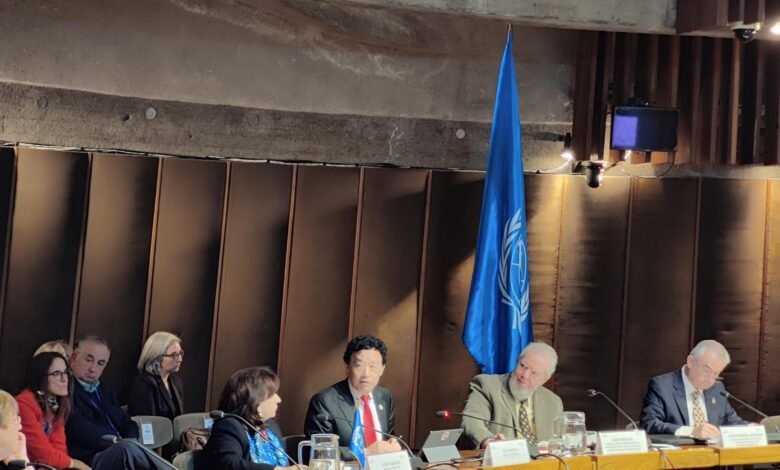Director-General calls for renewed progress towards a world without poverty and hunger

Santiago – It is time to join forces again to reimagine a world without poverty and hunger, QU Dongyu, Director-General of the Food and Agriculture Organization of the United Nations (FAO), said today in remarks at a high-level UN seminar. Economic Commission for Latin America and the Caribbean (ECLAC).
“2030 is close and we have not achieved what we set out to do,” he said, highlighting that the first two Sustainable Development Goals aimed to end poverty and hunger, respectively.
Around 8% of the world’s population suffers from extreme poverty, while one in 10 people lives with hunger. Furthermore, the vast majority of the world’s extremely poor people live in rural areas and play a vital role in global agri-food systems.
The FAO Director-General participated in “Towards the Second World Summit for Social Development: Strengthening global efforts to achieve the 2030 Agenda” together with Amina J. Mohammed, UN Deputy Secretary-General; Alberto van Klaveren, Minister of Foreign Affairs of Chile; Paula Narváez, president of ECOSOC; and the Directors-General of DESA, ILO, UNDP, UN Women and WHO, as well as Juan Somavía, President of the Preparatory Committee for the World Summit for Social Development held in 1995. A second Summit is scheduled for 2025.
The UN General Assembly’s decision to convene the second summit pays tribute to the first, which innovated by placing people at the center of development and catalyzing the design of more than 40 national poverty eradication strategies.
Today, poverty and hunger are closely linked, as the majority of the world’s poor are smallholder farmers and agricultural workers, most of them women, Qu said. Furthermore, their well-being is closely linked to natural resources and their livelihoods are particularly exposed to environmental extremes and climate stressors.
The Director-General urged UN stakeholders present to work together to produce value-added knowledge and guidance that no single agency, expert or country can muster on its own. FAO is particularly willing to cooperate, he added, noting that agriculture ministers around the world are used to working with others.
He also called for innovation, both in establishing a multilateral platform to pursue social development, in reshaping aid and grants into investments, and in creating new cutting-edge social sciences. “This way, we can help countries change on the ground,” he said.




